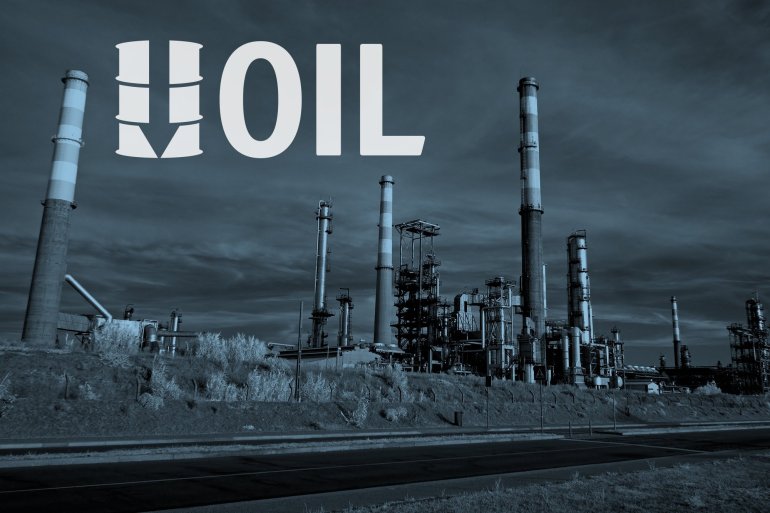- Ghana Eyes W’Africa’s Petroleum Hub Ahead of Nigeria
While Nigeria has continued to grapple with challenges in the downstream sector of its oil and gas industry after several decades of oil production, its West African counterpart, Ghana, is gearing up to become a petroleum hub.
Ghana began crude oil production in 2010, more than 50 years after Nigeria started commercial production of the commodity.
“The vision of the government of Ghana for the downstream petroleum industry is to ensure that the industry becomes a petroleum hub in the sub-region,” the Deputy Minister of Energy, Ghana, Dr. Mohammed Adam, said in Lagos at the 11th Oil Trading and Logistics Expo.
According to him, the government of Ghana is currently developing a downstream petroleum infrastructure master plan aimed at enhancing the pace of infrastructure sourcing with a regional context in mind.
“Our unique geographical position, democratic stability and security require that we provide leadership in building an integrated infrastructure to serve the sub-regional petroleum industry,” he said.
Adam noted that the acute petroleum infrastructure deficit in Africa had led to overdependence on the refineries of other continents.
He said “Our petroleum industry infrastructure such as ports, jetties and tank farms are not only inadequate but are in deplorable state. This has increased the cost of importing products and helped build an offshore black market, which is not regulated and from which our governments do not earn any tax income.
“It is, therefore, quite refreshing to note that a major development in Nigeria relating to the proposed $12bn investment in a 650,000 barrel per day refinery has caught the attention of the world. This massive private sector initiative has sent hope to other African countries on the viability of investing in a huge refinery.”
The deputy minister said the country had fully deregulated the industry with the exception of residual fuel oil and premix fuel, still being regulated by the government.
“I wish to call on the Nigerian government to make efforts at reaching full price deregulation given that it is the largest market for products; and any failure on its part can distort the sub-regional market we all envisage.”
The Chief Executive Officer, National Petroleum Authority, Ghana, Mr. Alhassan Tampuli, said the country had reduced sulphur content in fuel from 3,000ppm to 50ppm after missing two timelines.
“Currently products that we bring into the country, both gasoline and gas oil, have to be in accordance with these quality assurances. When Nigeria comes on board together with Ghana, we would have about 70 per cent of the consumption in West African region complying with the new specification. We export to Burkina Faso, Mali and to some extent Niger, and I believe Nigeria also exports to many other countries,” he said.
The Minister of State for Petroleum Resources, Dr. Ibe Kachikwu, said Nigeria’s downstream sector, which was fully subsidised, had been partially liberalised by tackling the issue of pricing governance, efficiency and sustainability.
He, however, said the downstream sector would continue to experience challenges as long as the nation could not locally refine its domestic consumption needs.
The minister, who was represented by an official from the ministry, Mr. Busari Kamoru, said, “Our domestic refining inefficiencies have exposed us to macro-economic elements such as the rising cost of crude oil, and volatility of the foreign exchange market. An increase in crude price leads to a corresponding increase in the price of refined products, which gives the government a systemic challenge in trying to maintain affordable and sustainable supply to the local consumers.
“With crude oil hovering around $50, marketers have shifted back on importation due to cash illiquidity to source foreign exchange, leaving the NNPC to bear almost 95 per cent of the importation needs, thus absorbing the deficit of the cost of importing petroleum products to ensure supply stability.”
Highlighting financing as part of the major challenges currently plaguing the nation’s downstream sector, Kachikwu said, “A lot of money is being owed to marketers from the subsidy era and to local companies who are suffering cash constraints.”
He said the solutions to the impediments would include attracting investment into refining sector and embarking on massive rehabilitation of the existing national refineries as well as establishment of additional Greenfield and modular refineries.
He said, “Paying up outstanding subsidy debts to enhance liquidity in the sector and working with the Central Bank of Nigeria in ensuring availability and access of foreign exchange for every strand of petroleum products” would improve the ability of local companies to do business in the downstream sector.
“Going forward, the government will continue to ensure required exchange liquidity remains available, transparent and efficient to marketers who are importing petroleum products until such a time when we shall no longer have the need to import products,” the minister added.
“This will safely lead us to a point where we can minimise and eventually eliminate importation of petroleum products,” he added.

 Forex3 weeks ago
Forex3 weeks ago
 Naira3 weeks ago
Naira3 weeks ago
 Billionaire Watch3 weeks ago
Billionaire Watch3 weeks ago



 Naira3 weeks ago
Naira3 weeks ago






 Naira3 weeks ago
Naira3 weeks ago




 Naira2 weeks ago
Naira2 weeks ago






 Naira2 weeks ago
Naira2 weeks ago




 Naira4 weeks ago
Naira4 weeks ago
























